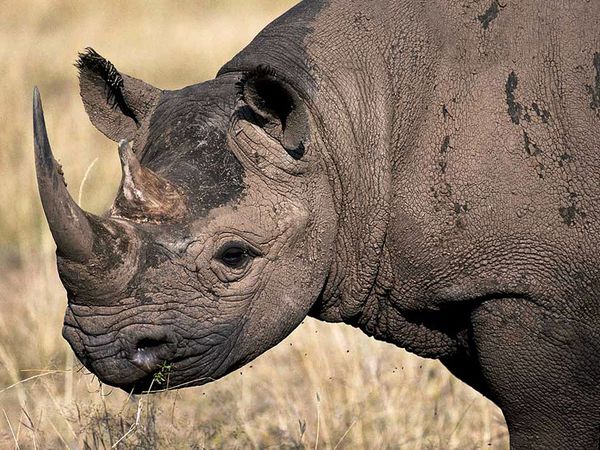
NEW JERSEY – The ringleader of an international rhino smuggling conspiracy was sentenced today to five years and 10 months in prison for wildlife trafficking crimes, federal officials stated.
Zhifei Li, the owner of an antique business in China, was charged with heading an illegal wildlife smuggling conspiracy in which 30 rhinoceros horns and numerous objects made from rhino horn and elephant ivory worth more than $4.5 million were smuggled from the United States to China, officials said.
The sentence was one of the longest sentences to be imposed in the United States for a wildlife smuggling offense, officials said.
Li, 30, of Shandong, China, the owner of Overseas Treasure Finding in Shandong, previously pleaded guilty before U.S. District Judge Esther Salas to a total of 11 counts including one count of conspiracy to smuggle and violate the Lacey Act; seven counts of smuggling; one count of illegal wildlife trafficking in violation of the Lacey Act.
Rhinoceros are an herbivore species of prehistoric origin and one of the largest remaining mega-fauna on earth. They have no known predators other than humans.
All species of rhinoceros are protected under United States and international law. Since 1976, trade in rhinoceros horn has been regulated under the Convention on International Trade in Endangered Species of Wild Fauna and Flora also known as CITES, a treaty signed by over 170 countries around the world to protect fish, wildlife and plants that are or may become imperiled due to the demands of international markets.
In addition to the prison term, Judge Salas ordered Li to forfeit $3.5 million in proceeds of his criminal activity as well as several Asian artifacts.
Various ivory objects seized by the USFWS as part of the investigation have also been surrendered.
“Li was the ringleader of a criminal enterprise that spanned the globe and profited from an illegal trade that is pushing endangered animals toward extinction,” said Sam Hirsch, Acting Assistant Attorney General for the Environment and Natural Resources Division. “As this case clearly demonstrates, rhino trafficking is increasingly organized, well financed, and a threat to the rule of law. The United States is resolved to bring wildlife traffickers to justice.”
In papers filed in Newark federal court, Li admitted that he was the “boss” of three antique dealers in the United States whom he paid to help obtain wildlife items and smuggle them to him via Hong Kong.
One of those individuals was Qiang Wang, aka “Jeffrey Wang,” who was sentenced to 37 months in prison on Dec. 5, 2013, in the Southern District of New York .
Li played a leadership and organizational role in the smuggling conspiracy by arranging for financing to pay for the wildlife, purchasing and negotiating prices, directing how to smuggle the items out of the United States, and getting the assistance of additional collaborators in Hong Kong to receive the goods and smuggle them to him in mainland China.
In pleading guilty, Li admitted that he sold 30 smuggled, raw rhinoceros horns worth approximately $3 million – approximately $17,500 per pound – to factories in China where raw rhinoceros horns are carved into fake antiques known as Zuo Jiu ,which means “to make it as old” in Mandarin.
In China, there is a centuries old tradition of drinking from an intricately carved “libation cup” made from a rhinoceros horn. Owning or drinking from such a cup is believed by some to bring good health, and true antiques are highly prized by collectors. The escalating value of such items has resulted in an increased demand for rhinoceros horn that has helped fuel a thriving black market, including recently carved fake antiques.

